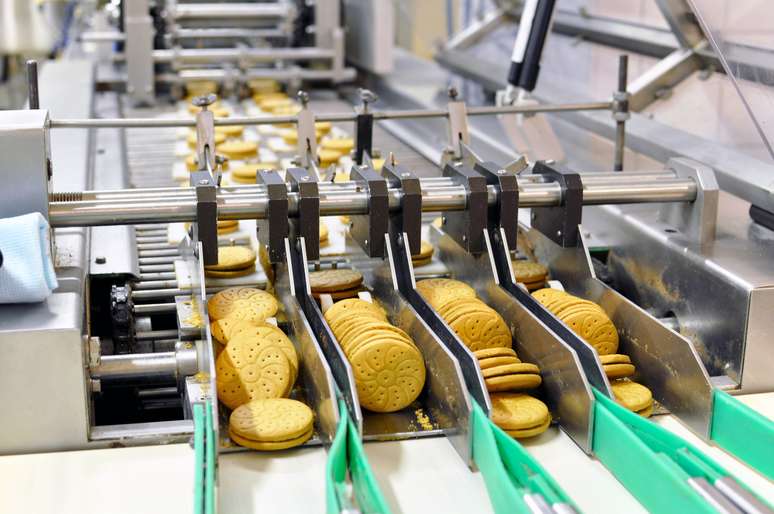In today's conscientious consumer landscape, the need for morally sourced and lasting products has actually risen. Private label food manufacturers have actually become pioneers in this domain, typically teaming up with agreement food makers to spearhead sustainability and liable sourcing initiatives. With a resolute commitment to environmental principles, personal label brands have made it their objective to provide lasting, premium choices to customers.
Private Label Food Manufacturers
In the last few years, private label food manufacturers, additionally called own private label food products brand names or shop brand names, have witnessed an exceptional rise in appeal. These producers produce goods offered under the logo of a retailer, grocer, or personal entity. What collections private-label products apart is their capability to use affordable rates without compromising on quality.
Contract Food Manufacturers
Several private-label food producers sign up with forces with agreement producers to develop their line of product. Agreement food suppliers are professionals in creating food products for exclusive tags. This strategic partnership allows personal label firms to use the know-how, sources, and committed food production facilities of their collaborators.
Sustainability at the Core
Private label food manufacturers utilize various approaches to boost sustainability within their supply networks:
Ethical Sourcing:
Private label business are progressively dedicated to sourcing ingredients according to moral as well as fair trade standards. This entails ensuring that manufacturers as well as workers of basic materials, such as coffee beans, flavors, or cocoa, receive fair settlement for their initiatives.
Regional Sourcing:
Prioritizing neighborhood sourcing of active ingredients is another characteristic of private-label food makers. This not just lowers the carbon footprint associated with transportation but also sustains neighborhood farmers and also areas.
Organic Ingredients:
With the organic food market rising, exclusive tags are reacting by including organic components into their line of product. Organic farming practices prioritize soil health while eschewing artificial chemicals and fertilizers.
Lasting Fish and shellfish:
Private Label Food Manufacturers are attentive in making certain that the seafood they utilize is sustainably harvested, adhering to standards established by companies like the Marine Stewardship Council, which advertises responsible fishing.
Decreased Food Waste:
Exclusive label companies are actively servicing decreasing food waste by carrying out effective manufacturing procedures and creating products with longer service life. Some brand names are likewise partnering with food rescue companies to donate surplus food to those in need.
Eco-Friendly Packaging as well as Campaigns
Sustainability initiatives by private-label food makers extend beyond sourcing components to encompass packaging and green initiatives:
Sustainable Packaging:

Exclusive label brands have embraced green product packaging options, consisting of recyclable, naturally degradable, or compostable materials. Revamping product packaging to lessen excess material and also reduce environmental effect is a top priority.
Waste Decrease:
To lessen wastage, private-label food producers maximize item sizes, lower excess product packaging, and also explore innovative product packaging options. Some brands also urge clients to participate in recycling programs.
Power Effectiveness:
Many private label suppliers are purchasing even more energy-efficient production plants, minimizing water use, and adopting renewable energy resources to further decrease their ecological impact.
Carbon Neutral Initiatives:
Some private brand name food makers are taking ambitious steps to achieve carbon nonpartisanship by offsetting their greenhouse gas emissions via reforestation tasks and also renewable resource credit histories.
Obstacles and the Roadway Ahead
Despite the significant strides made in sustainability and also liable sourcing, private-label food manufacturers deal with obstacles. Balancing sustainability with cost-effectiveness can be a delicate act, occasionally calling for compromises on lasting active ingredients or the exploration of environment-friendly choices.
However, the future of private-label food manufacturing holds terrific guarantee. As customer awareness as well as demand for sustainable items remain to rise, private-label brands and their contract food manufacturing companions are likely to intensify their efforts. Collaboration with suppliers and also financial investment in lasting technological advancements as well as openness will be critical in shaping a sustainable future for the market.
Often Asked Questions
Q1: What are private label food manufacturers?
Private label food manufacturers produce items offered under the logo of a retail store, grocer, or personal entity. They use competitively valued products without compromising on high quality.
Q2: How do private label food manufacturers promote sustainability?
Private label food manufacturers promote sustainability with honest sourcing, local active ingredient purchase, making use of natural ingredients, sustainable fish and shellfish practices, as well as initiatives to lower food waste.
Q3: What green product packaging alternatives do private label brands make use of?
Exclusive label brand names adopt eco-friendly product packaging choices such as recyclable, naturally degradable, or compostable materials. They additionally revamp product packaging to reduce excess material as well as lower environmental effect.
Q4: What tests do private label food manufacturers deal with in sustainability efforts?
Stabilizing sustainability with cost-effectiveness is a major challenge for private label food manufacturers. This may call for concessions on lasting active ingredients or the expedition of green choices.
Final thought
Private label food manufacturers are at the forefront of the sustainability and accountable sourcing movement within the food sector. Their dedication to honest sourcing, regional procurement, organic active ingredients, as well as sustainable techniques, in addition to their commitment to green packaging as well as waste decrease campaigns, show their determination to satisfy the demands these days's eco-conscious consumers.
Regardless of the obstacles they face, private label food manufacturers are poised for a promising future. With customers increasingly focusing on sustainability, the market is likely to witness even better cooperation with suppliers, investment in sustainable modern technologies, and also a dedication to openness. As we progress, private label food manufacturers will certainly continue to play a crucial function fit an extra sustainable and also honest food landscape for all.
